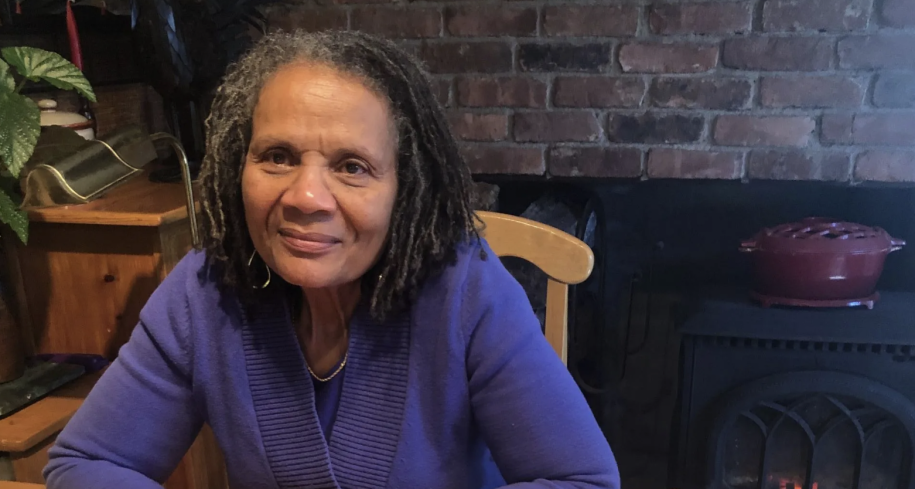
Breadcrumb
- Essential Partners
- Our Impact
- News and Notes
- Impact Snapshot: Addressing Racism, Policing, and the Mental Health Crisis in Warwick, NY
Impact Snapshot: Addressing Racism, Policing, and the Mental Health Crisis in Warwick, NY

“My goal is to do training that will seed our community. To show people that there are different ways to open conversations, to build connections. Because with all of the challenges we face—polarization, the pandemic, all the rest—it's time to start thinking differently, time to start operating differently.”
“My personal goal was to go deeper with conversations that I have with people. There are tensions in my community. I want to be prepared and be able to navigate a conversation.”
Beverly Braxton is a retired teacher from Warwick, New York, as well as the founder of Family Central, a parenting support network that aims to help parents feel less alone with the challenges of raising children. Braxton completed dialogue facilitation skills training with Essential Partners (EP) and is an active member of our Community of Practice.
In her role with Family Central, Braxton facilitates workshops with families and community groups. She uses storytelling to help people navigate through some of the most pressing challenges of our time, such as racism, policing, and the national mental health crisis.
“Whenever I’m doing workshops for families we’re always talking about ways to open dialogue, even within our own families. We had a workshop recently where we talked about creating conversations for people rather than lecturing to them. Giving people a sense of agency—getting them in touch with what’s needed,” says Braxton of her work.
“We talked about different ways for people to connect with each other, and making this a priority.”
Braxton uses the power of listening and storytelling to help people connect across differences in the cornerstone institutions of her community.
“We’re initiating a town-wide storytelling event. We’re bringing people into a circle to tell a 5-minute story about something in their lives to build connection with each other. I’m asking ministers, if they’re not doing this already, if they ask their congregations to address the separateness we feel. Asking them to support dialogues in Warwick. Asking them to open up space for conversations,” says Braxton.
“My goal is to do training that will seed our community. To show people that there are different ways to open conversations, to build connections. Because with all of the challenges we face—polarization, the pandemic, all the rest—it's time to start thinking differently, time to start operating differently. There is something we can do to push forward. My emphasis is on social change. This is what needs to be done.”
Braxton also notes the racial tensions that exist in her community of Warwick, and how her training with Essential Partners has equipped her to create space for connection and resilience.
“There are tensions in my community around racial difference. There have been Oath Keeper members here, and other white supremacist groups are also here. The tensions are major,” says Braxton.
“I wrote a letter to our local newspaper asking, ‘Could we do something different? Would you be willing to join me?’ I created a process called ‘We The People’ and 90 people showed up within 30 days. We got off to a great start. But more tensions kept emerging. I was anxious about managing a racial situation.”
In those moments when she feels the scale weighing on her, Braxton leans into what she learned in her EP workshop.
“Bob [Stains], the Essential Partners associate, talked about owning whatever happens. ‘What’s your experience? Be present with it,’ he said. He gave me a toolbox with so many tools. It was a strong reminder that I’m tougher than what I think I am. I can feel threatened but I can handle it.”
She aims to connect people who would otherwise have no opportunity to build relationships, yet depend on each other for a healthy, stable community.
“We’re spreading the value of storytelling to the local community. We have a new chief of police. I’d love to do stories with a cop, getting police and community members together, getting them to know each other as human beings,” says Braxton.
“I had wanted to do dialogues between police and community members, but I want our professions separate from our identity as humans. Let’s talk about fishing, or something like it. Ordinary human stories. I don’t want a uniform to limit my imagination about what this person could be. Both stories and dialogues could be great. Stories could lead to dialogue.”
EP is helping her build confidence every step of the way, says Braxton.
“I’m more confident. I feel like things are pouring out of me, as opposed to me questioning and examining everything. I’m more relaxed within myself. I’m giving space to what shows up. I don’t have to know everything. It’s been very comforting to witness this process within myself emerging.”